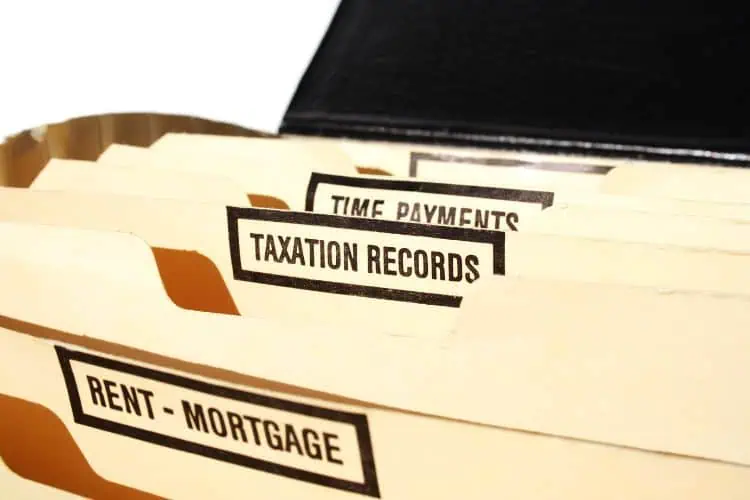Property managers in Queensland, Australia, are required to maintain a comprehensive set of records pertaining to their management activities. This begs the question, how long do property managers keep records?
The specific duration for which these records must be kept is determined by various legislative acts and regulations, including the Property Occupations Act 2014 (POA), the Agents Financial and Administration Act 2014 (AFA Act), and the Residential Tenancies and Rooming Accommodation Act 2008 (RTRA Act).
Property Occupations Act 2014 (POA) and Regulation 2014 (PO Regulations)
According to Section 15 of the PO Regulations, property managers must keep each document they are required to keep under the Act:
- In a secure, orderly, and accessible way
- For at least 5 years
This 5-year retention period applies to a wide range of property management forms and records.
Agents Financial and Administration Act 2014 (AFA Act) and Regulation 2014 (AFA Regulations)
Section 26 of the AFA Regulation requires that records of all trust account transactions be kept for a minimum of 5 years.

Residential Tenancies and Rooming Accommodation Act 2008 (RTRA Act)
The RTRA Act has specific provisions regarding the retention of tenancy-related documentation:
- Copies of receipts or other appropriate written records of rent payments must be kept for at least one year after the agreement ends.
- Exit condition reports signed by both parties must be kept for at least one year after the agreement ends.
Risk Management, Professional Indemnity Insurance, and Property Management Claims
In the event of a claim against a property management agency, it is crucial that the agent can provide appropriate evidence to defend the claim.
This includes maintaining comprehensive records of all transactions and communications throughout the property management process.
Some examples of the records that should be retained include:
- PO Form 6s
- Maintenance records
- Entry, exit, and routine inspection reports
- Tenancy selection documentation
- RTA Form 18as
- QCAT applications
- Contractor appointment forms and relevant qualifications/insurance details
- RTA-approved forms
- File notes of meetings, phone conversations, text messages, emails, and other forms of communication
The best practise is to retain these records for at least seven years, as claims can be made up to 6 years from the date of discovery.
Types of Records to be Kept

Managers of rental properties in Queensland are required to maintain a wide range of records related to their management activities. These records include, but are not limited to:
- Rental applications and tenant selection documentation
- Lease agreements and related documents
- Condition reports (entry, periodic, and exit)
- Rent payment records and receipts
- Maintenance requests and invoices
- Correspondence with tenants, owners, and contractors
- Property inspection reports
- Financial records (bank statements, invoices, receipts, etc.)
- Copies of any legal documents or notices
These records must be kept in a secure, orderly, and accessible manner to ensure they can be readily retrieved if needed to defend a claim or dispute.
Importance of Record-keeping
Maintaining accurate and comprehensive records is essential for property managers in Queensland. Not only does it ensure compliance with legal and regulatory requirements, but it also:
- Protects the property manager and their clients in the event of disputes or legal proceedings
- Provides a clear audit trail for financial transactions and property management activities
- Enables the property manager to respond effectively to tenant enquiries or requests
- Supports the property manager’s business operations and decision-making processes
By developing and implementing a robust records management system, property managers can demonstrate professionalism, accountability, and transparency in their service delivery.
Read further on whether property managers get paid commission.
Consequences of Non-compliance

Failure to comply with the record-keeping requirements set out in the relevant legislation can have serious consequences for property managers in Queensland.
Regulatory bodies, such as the Office of Fair Trading, have the authority to impose fines or other penalties on agents who do not adhere to the mandated record-keeping practises.
Moreover, the lack of proper documentation can significantly hinder a property manager’s ability to defend against any claims or disputes that may arise.
Without the necessary records, agents may find themselves at a disadvantage when attempting to resolve issues or protect their interests and those of their clients.
In addition, non-compliance with record-keeping requirements may also have an impact on the property manager’s professional indemnity insurance coverage.
Insurers may be less inclined to provide coverage or may deny claims if they determine that the agent has failed to maintain adequate records.
Beyond the financial and legal implications, non-compliance can also damage the reputation and credibility of the property management agency.
Clients and regulatory authorities may view the agency as unprofessional or untrustworthy, which could lead to a loss of business and further reputational harm.
Read more here on how to manage a rental property by yourself.
Wrapping Up
Maintaining comprehensive and compliant record-keeping practises is a fundamental responsibility for property managers in Queensland, Australia.
The legislative requirements set out in the Property Occupations Act 2014, the Agents Financial and Administration Act 2014, and the Residential Tenancies and Rooming Accommodation Act 2008 clearly outline the specific durations for which various types of records must be retained. In most cases, it’s a minimum of 5 years.
By adhering to these record-keeping obligations, property managers can not only ensure legal compliance but also protect themselves and their clients in the event of a claim or dispute.
Well-organised and readily accessible records can serve as crucial evidence to defend against any allegations or issues that may arise, preserving the agency’s reputation and credibility.
Beyond the legal and risk management benefits, effective record-keeping also enables property managers to maintain transparent and accountable practises, fostering trust with their clients and reinforcing the professionalism of the industry as a whole.
